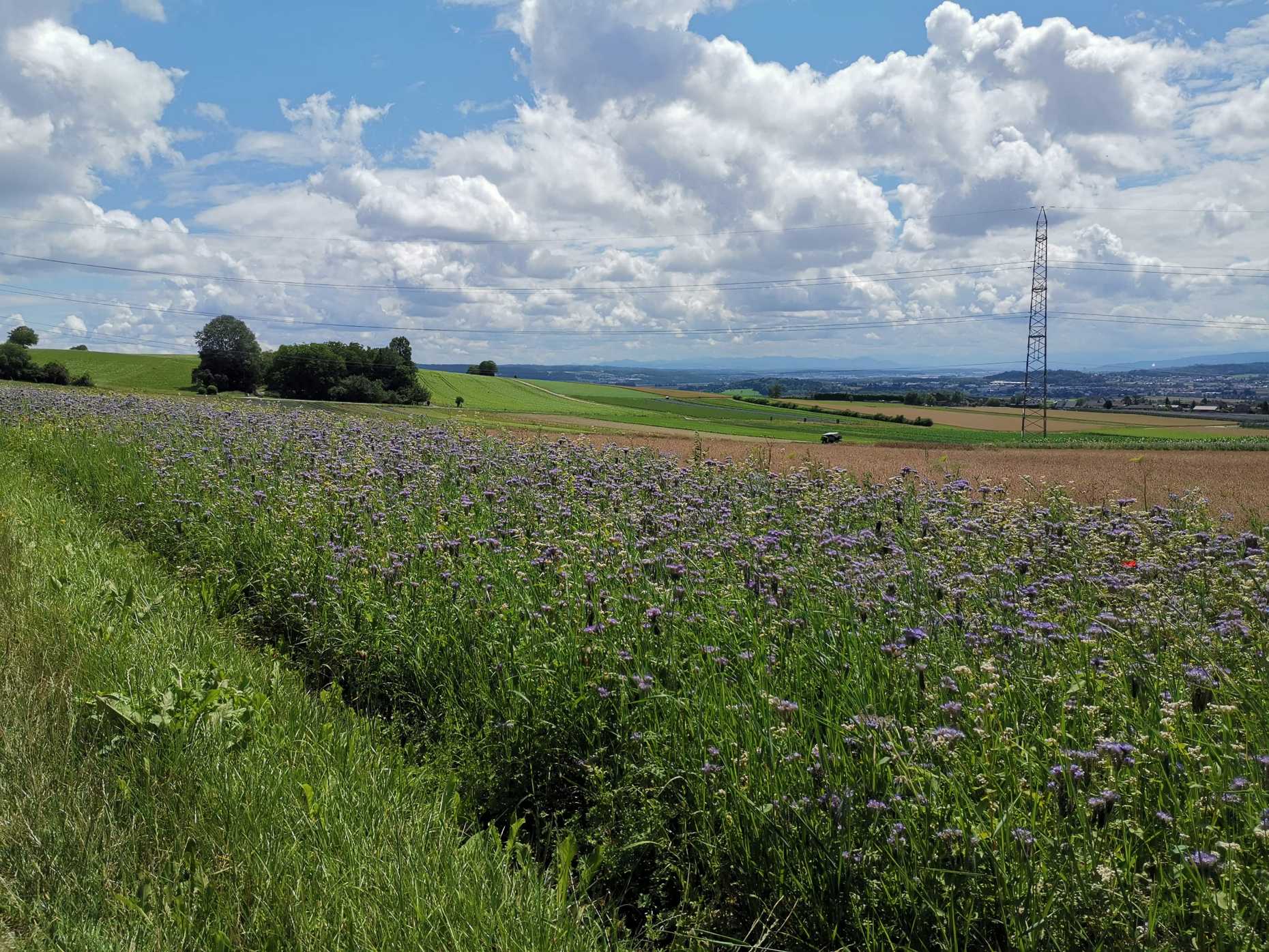Enhancing Biodiversity & Resilience in Crop Production

Restoring biodiversity in agricultural landscapes, which now cover a large share of the Earth’s land surface, will require working with farmers to develop new knowledge and tools for integrating natural habitats into agricultural systems. Doing so can enhance the ecological and economic resiliency of agriculture while supporting biodiversity, both central objectives of the Sustainable Development Goals (SDGs).
The transdisciplinary research project ‘Enhancing Biodiversity & Resilience in Crop Production’ (LINK: https://worldfoodsystem.ethz.ch/research/special-collaborations/enhancing-biodiversity.html) will analyze pathways to enhance biodiversity and resilience in agricultural systems. For this purpose, the project will consolidate and synthesize existing knowledge relating to farm and landscape practices as well as policies to enhance biodiversity and resilience in intensive soy, maize, and wheat production systems. The project team will work together with farmers in Brazil, Germany, France, the United States to validate the currently available management options and to evaluate potential beneficial policies and business models.
Objectives
• Synthesize knowledge on habitat creation options for biodiversity and resilience
• Explore scenarios with farmers for biodiversity-oriented outcomes
• Develop the basis for decision-making and value generation tools
• Outline financial and business models by which interventions can be scaled
Project partners
This project brings together academic, industry, and policy expertise in agriculture and ecosystem management. ETH Zurich and the International Food Policy Research Institute (IFPRI) have joined with partners in Brazil, Germany, France, and the USA, to provide both global and local perspectives.
Funding
ETH Foundation (realized in collaboration with Bayer Crop Science)
Joint focus of the AECP Group and Chair of Ecosystem Management
Restoring biodiversity in agricultural landscapes requires including farmers in the solution. One way to include farmers is by means of public and private agri-environmental schemes that incentives conservation and habitat creating practices. This requires in-depth knowledge about farmers’ adoption decision of those schemes.
Our focus will be on consolidating existing knowledge on farmers’ adoption determinants in arable agricultural systems. This understanding will also help understand farmers’ adoption under a changing agri-environmental policy environment, such as the transition from action- to result-based payments or from farm-level to landscape approaches.
Outreach
Panel discussion – ‘Bending the curve of biodiversity loss: A panel discussion’ co-hosted by the World Food System Center, the Ecosystem Management Group, the Sustainable Agroecosystems Group, and the Agricultural Economics and Policy Group of ETH Zurich. (https://worldfoodsystem.ethz.ch/news/wfsc-news/2021/06/bending-the-curve-of-biodiversity-loss-a-panel-discussion.html )
Blog – ‘Rethinking Agriculture’, World Food System Center Blog, by Jaboury Ghazoul (https://worldfoodsystem.ethz.ch/news/wfsc-news/2021/05/biodiversity-blog-rethinking-agriculture.html)
Duration
2021-2022
Contact
Sergei Schaub (), Robert Finger (), and for the project at large Jaboury Ghazoul ()
Publications
Sander, A., Ghazoul, J., Finger, R., Schaub, S. (2024). Participation in individual and collective agri-environmental schemes: A synthesis using the Theory of Planned Behaviour. Journal of Rural Studies 107: 103255 external page >>
Schaub, S., Ghazoul, J., Huber, R., Zhang, W., Sander, A., Rees, C., Banerjee, S., Finger, R. (2023). The role of behavioral factors and opportunity costs in farmers' participation in voluntary agri-environmental schemes: A systematic review. Journal of Agricultural Economics 74(3): 617-660 external page >>
Elmiger, N., Finger, R. Ghazoul, J, Schaub, S. (2023). Biodiversity indicators for result-based agri-environmental schemes - current state and future prospects . Agricultural Systems 204 103538 external page >>
Blogs
Persönliche Einstellungen, soziale Normen und Vertrauen sind wichtige Komponenten, damit Landwirt*innen an Agrarumweltprogrammen teilnehmen external page https://agrarpolitik-blog.com/2024/04/16/personliche-einstellungen-soziale-normen-und-vertrauen-sind-wichtige-komponenten-damit-landwirtinnen-an-agrarumweltprogrammen-teilnehmen/
Weshalb nehmen Landwirt*innen an Agrarumweltprogrammen teil? Eine Literaturübersicht. external page https://agrarpolitik-blog.com/2023/08/23/weshalb-nehmen-landwirtinnen-an-agrarumweltprogrammen-teil-eine-literaturubersicht/
Vue d’ensemble des indicateurs de biodiversité pour les programmes agroenvironnementaux axés sur les résultats external page https://agrarpolitik-blog.com/2023/02/01/vue-densemble-des-indicateurs-de-biodiversite-pour-les-programmes-agroenvironnementaux-axes-sur-les-resultats/